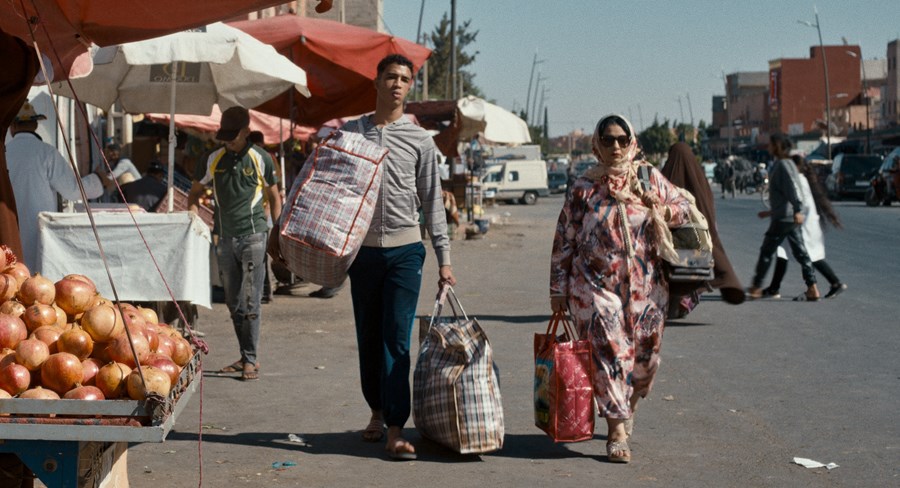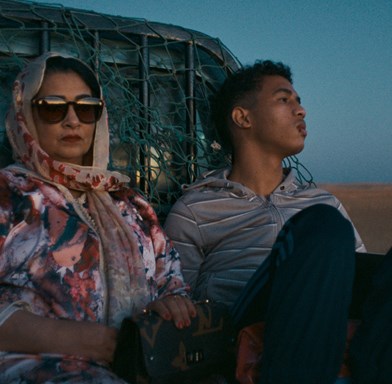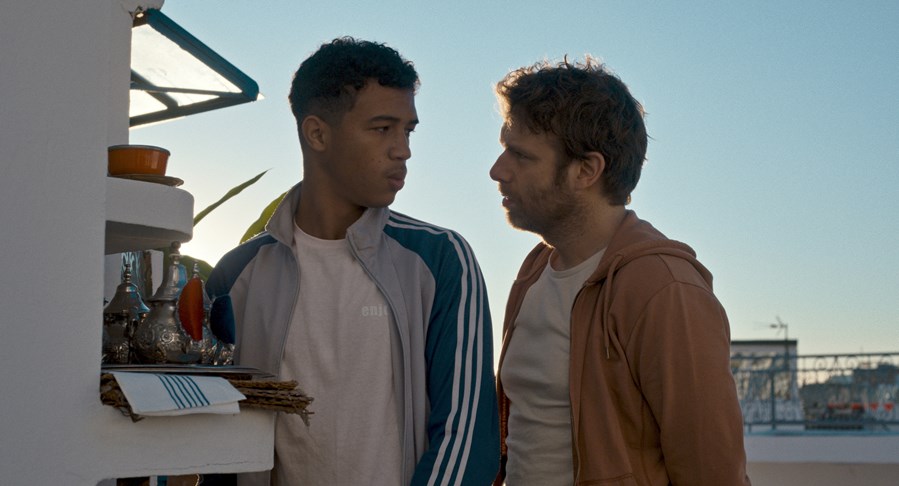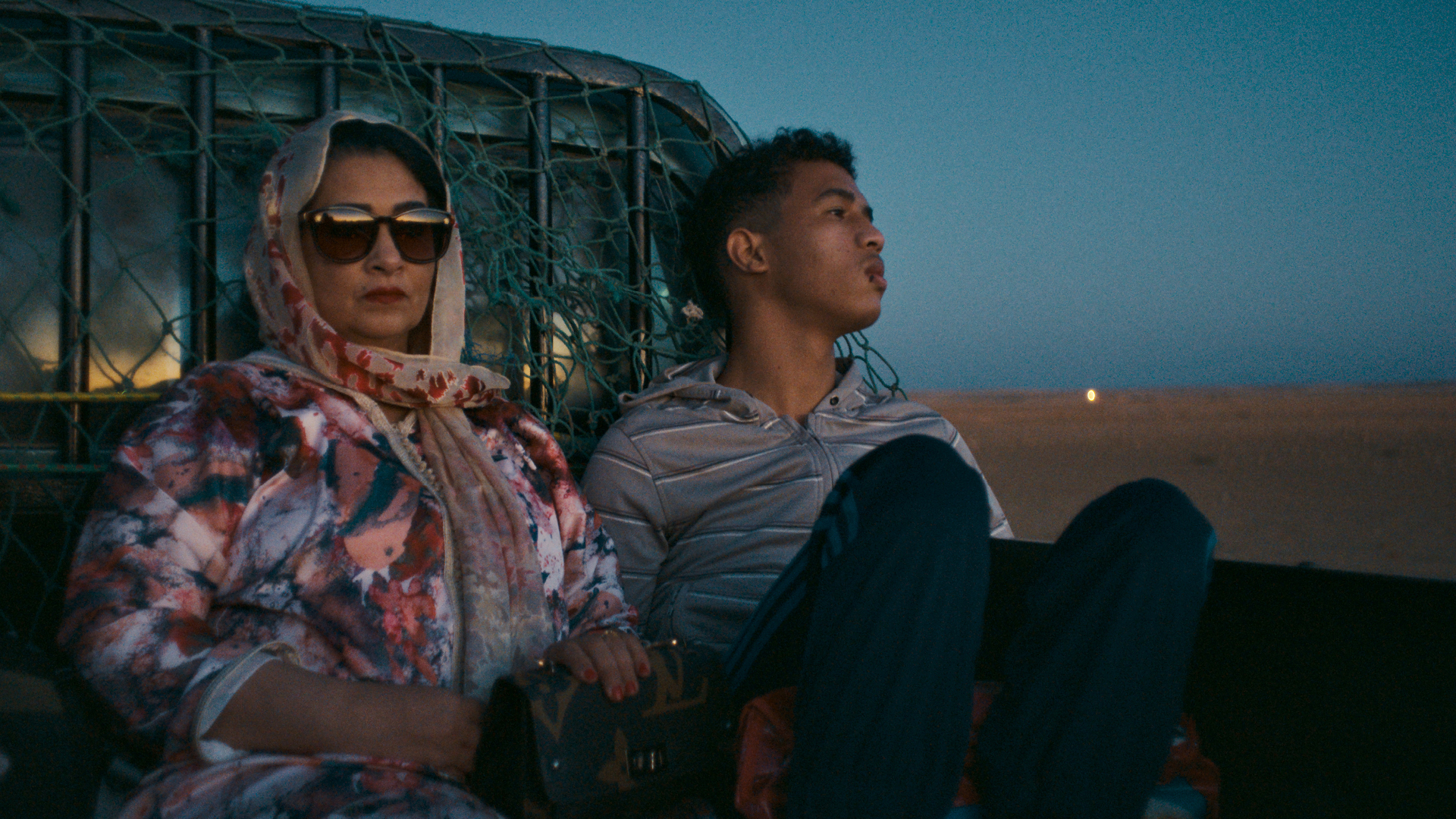Josh Slater-Williams takes a look at the influences of melodrama in writer-director Fyzal Boulifa’s excellent sophomore feature The Damned Don’t Cry.

The second feature by British-Morrocan filmmaker Fyzal Boulifa, The Damned Don’t Cry (2022) follows the struggles of a mother and son living on the margins of Morrocan society. Single mother Fatima-Zahra (Aicha Tebbae) and her teenage son Selim (Abdellah El Hajjouji) move from place to place, forced to make fresh starts after every new scandal the matriarch seems to generate.
While the location of this film relates to his family heritage – and one family member reportedly informed the writing of his female lead – the Leicester-raised writer-director’s latest is no autobiographical text. Instead, it draws influence from a cinematic genre that reached its height during Hollywood’s so-called Golden Age, though one that has continued to endure through modern transformations: the melodrama.

The specific subgenre within melodrama that focuses on the bond between a parent and (usually just one) child has produced some of the form’s greatest works. It wouldn’t be unreasonable to suggest that melodrama films about parent-and-child relationships more commonly focus on mothers and daughters. Think Bette Davis as the daughter in Now, Voyager (1942); the melodrama and film noir hybrid Mildred Pierce (1945); Sophia Loren’s Oscar-winning performance in Two Women (1960), a European example; or both screen adaptations of Fannie Hurst’s Imitation of Life (1934 and 1959).
Perhaps the ultimate maternal melodrama is Stella Dallas, the best-known screen adaptation being King Vidor’s 1937 masterpiece, starring Barbara Stanwyck in the title role. In The Damned Don’t Cry, Fatima-Zahra’s resolve and her attempt to invest in a glamorous appearance, in spite of her financial circumstances, recalls Stella Dallas in particular, among the wealth of classic melodrama mothers. ‘Because they were seen as women’s films, those films would have these recurring motifs: jewels, diamonds, things like that,’ Boulifa stated in an interview with Sight and Sound, regarding the influence of such films on his female protagonist. ‘I liked the idea of showing the Moroccan, working-class version of that: things that are quite cheap, and might not even look that good, but still have that air of quality. And I wanted to do that without too much irony – without looking down on it.’

Whether consciously or not, Boulifa’s film differs from these parental melodramas in one key way. Perhaps speaking to his comment about how mid-century entries in the genre were ‘seen as women’s films’, there aren’t many examples of a father filling the main character role for these stories – no top billing for Stephen Dallas. And where a mother is the focus, it’s almost always a daughter with whom their story as a parent is most intertwined.
Cinema in general is hardly lacking for male perspectives, but it is curious how infrequent a mother-and-son pairing is found in melodramas. Funnily enough, one of the most celebrated modern melodramas, Pedro Almodóvar’s All About My Mother (1999), seems to be promising us that from its opening setup, only for – spoiler alert – the teenage son to be killed in an accident roughly ten minutes into the running time; the rest of the film following his bereaved mother becoming a maternal figure to various women.

There are, of course, the odd high-profile instances. The Damned Don’t Cry shares some road movie DNA with Alice Doesn’t Live Here Anymore (1974), Martin Scorsese’s film which drew from classic melodrama. Like All About My Mother, a vehicular accident kicks off proceedings, though here it’s the husband of Alice (Oscar-winning Ellen Burstyn) who suddenly dies. With her preteen son in tow, she hits the road to pursue a former dream of a singing career, finding love, friendship and trouble along the way.
Although based on Tobias Wolff’s memoirs, rather than being purely fiction, director Michael Caton-Jones’ This Boy’s Life (1993) also has melodrama trappings in form and structure. In the 1950s, nomadic mother Caroline (Ellen Barkin) wants to settle down and find a decent new husband to provide a better home for herself and her teenage son, Toby (Leonardo DiCaprio, in his first lead film role). They move from town to town across the film, eventually settling with Dwight (Robert De Niro), a man who seemingly meets Caroline’s goals, though his true personality is later revealed as being emotionally and physically abusive. In the end, mother and son escape the abusive stepfather together in a mutual act of defiance, despite their own relationship being fraught at various points.

The love between mother and son in The Damned Don’t Cry is similarly wavering to the one found in This Boy’s Life, where resentments about the past see the teenage son regularly struggle to emphasise with his mother’s mindset, and where the mother’s sometimes blinkered focus on her own plan of action can create conflict. Perhaps the relative lack of mother-and-son melodramas can be attributed to the constraints of a patriarchal society being such a reliable and all-too-relevant narrative element within the genre. But toxic masculinity doesn’t only make victims of women. And without giving too much away, in making a very modern version of the melodrama, Boulifa is particularly smart in also exploring how both heteronormativity and colonial tension can lend additional shackles to patriarchy’s oppression. Like the best classic melodramas, The Damned Don’t Cry is a slice of humane storytelling with all too current issues on its mind.
The Damned Don’t Cry is out in cinemas and available on Curzon Home Cinema from Friday

